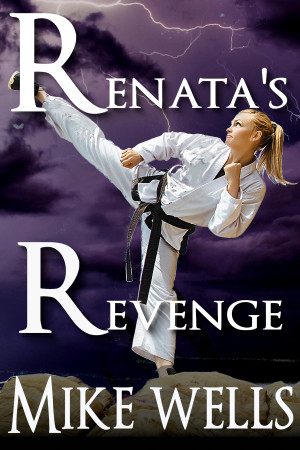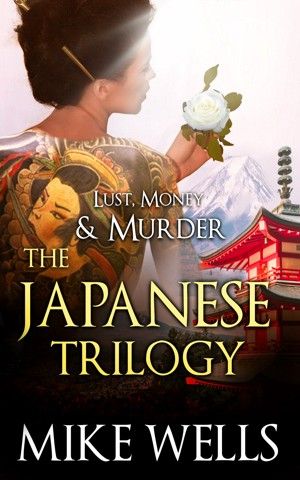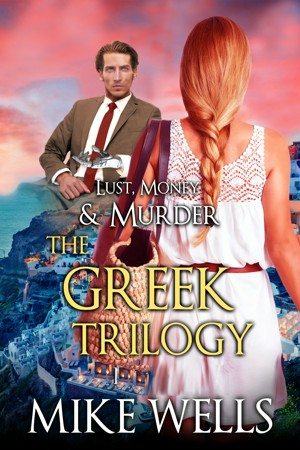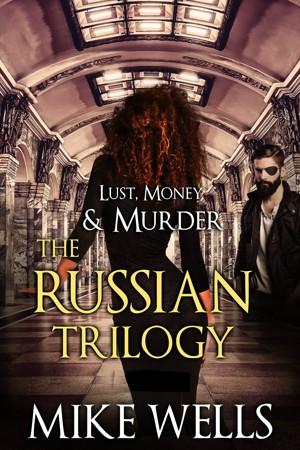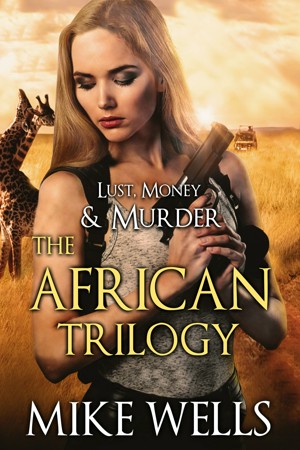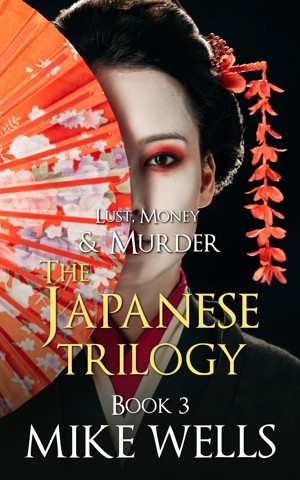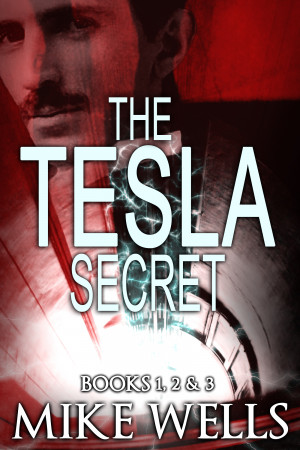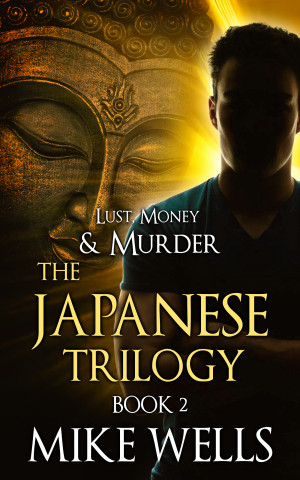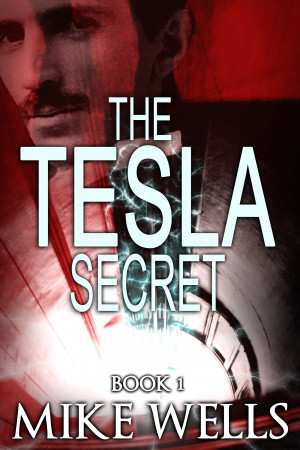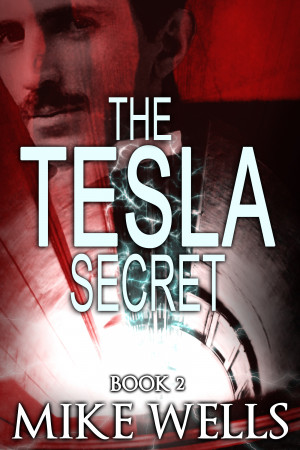Share with Friends
Interview with Mike Wells
Published 2013-08-31.
Smashwords Interviews are created by the profiled author or publisher.
Latest books by This Author
Renata's Revenge: They. Picked. The. Wrong. Girl.
by Mike Wells
Price:
$4.99 USD.
Words: 129,310.
Language:
English.
Published: February 9, 2022
.
Categories:
Fiction » Thriller & suspense » Crime thriller, Fiction » Mystery & detective » International crime
The moment fresh-faced American college student Renata Richardson is snatched off a Mediterranean beach and methodically gang-raped by seven filthy-rich businessmen, they all know everything there is to know about her. Except one thing: They. Picked. The. Wrong. Girl. Note: The idea for this story was triggered by the Jeffrey Epstein trafficking scandal.
The Japanese Trilogy Boxed Set (Lust, Money & Murder #13, 14 & 15)
by Mike Wells
Price:
$9.99 USD.
Words: 296,520.
Language:
English.
Published: December 2, 2021
.
Categories:
Fiction » Thriller & suspense » Crime thriller, Fiction » Mystery & detective » International crime
This specially-priced boxed set contains the entire Japanese Trilogy from the “unputdownable” Lust, Money & Murder series by Mike Wells. Included are 3 full-length novels: Lust, Money & Murder Books #13, 14 & 15.
Note: this trilogy can be read as a standalone. If you have already purchased Lust, Money & Murder Books 13, 14 & 15 separately, you should not buy this set.
The Japanese Trilog
The Greek Trilogy Boxed Set (Lust, Money & Murder #10, 11 & 12)
by Mike Wells
Price:
$9.99 USD.
Words: 346,570.
Language:
English.
Published: November 4, 2021
.
Categories:
Fiction » Thriller & suspense » Crime thriller, Fiction » Mystery & detective » International crime
This specially-priced boxed set contains the entire Greek Trilogy from the “unputdownable” Lust, Money & Murder series by Mike Wells. Included are 3 full-length novels: Lust, Money & Murder Books #10, 11 & 12, plus a bonus from the next trilogy in the series.
The Russian Trilogy Boxed Set (Lust, Money & Murder #4, 5 & 6)
by Mike Wells
Price:
$9.99 USD.
Words: 312,300.
Language:
English.
Published: September 13, 2021
.
Categories:
Fiction » Thriller & suspense » Crime thriller, Fiction » Mystery & detective » International crime
This specially-priced boxed set contains the entire Russian Trilogy from the “unputdownable” Lust, Money & Murder series by Mike Wells. Included: 3 full-length novels: Lust, Money & Murder #4, 5 & 6, plus a bonus from the next trilogy in the series.
This trilogy can be read as a standalone. If you have already purchased Lust, Money & Murder Books 4, 5 & 6 separately, you should not buy this set.
The African Trilogy Boxed Set (Lust, Money & Murder #7, 8 & 9)
by Mike Wells
Price:
$9.99 USD.
Words: 332,790.
Language:
English.
Published: October 7, 2021
.
Categories:
Fiction » Thriller & suspense » Crime thriller, Fiction » Mystery & detective » International crime
This specially-priced boxed set contains the entire African Trilogy from the “unputdownable” Lust, Money & Murder series by Mike Wells. Included are 3 full-length novels: Lust, Money & Murder Books #7, 8 & 9, plus a bonus from the next trilogy in the series.
Note: this trilogy can be read as a standalone. If you have purchased Lust, Money & Murder Books 7, 8, and 9 separately, please do not buy.
The Japanese Trilogy, Book 3 - (Lust, Money & Murder Book 15)
by Mike Wells
Price:
$9.99 USD.
Words: 118,780.
Language:
English.
Published: August 27, 2021
.
Categories:
Fiction » Thriller & suspense » Crime thriller, Fiction » Mystery & detective » International crime
Thanks to Elaine Brogan, Giorgio Cattoretti finally finds himself behind bars in one of the worst maximum security penitentiaries in Europe. Meanwhile, Elaine and Luna Faye continue their effort to track down The Factory, even though their boss has ordered them to drop the case.
The Tesla Secret - Books 1, 2 & 3
by Mike Wells
Price:
$4.99 USD.
Words: 106,900.
Language:
English.
Published: December 11, 2019
.
Categories:
Fiction » Thriller & suspense » Action & suspense, Fiction » Science fiction » Adventure
When a Stanford University physicist is kidnapped and whisked away to a top-secret research facility near Moscow, he finds that a Russian oligarch has developed a “free energy” machine based on the lost work of Nikola Tesla. There, he is forced to finish developing the earthshaking invention.
The Japanese Trilogy, Book 2 - The Invisible Manhunt (Lust, Money & Murder #14)
by Mike Wells
Price:
$9.99 USD.
Words: 96,260.
Language:
English.
Published: October 30, 2019
.
Categories:
Fiction » Thriller & suspense » Crime thriller, Fiction » Mystery & detective » International crime
When Giorgio Cattoretti enlists the help of Elaine Brogan to track down the international serial killer he unknowingly let loose on the world, Elaine reluctantly agrees.
The Tesla Secret, Book 1
by Mike Wells
Price:
Free!
Words: 35,430.
Language:
English.
Published: October 2, 2019
.
Categories:
Fiction » Science fiction » Adventure, Fiction » Science fiction » High tech
(2.00 from 1 review)
When a top Stanford University physicist is kidnapped and whisked away to a secret research facility near Moscow, he finds that a Russian oil magnate has spent the last ten years developing a “free energy” machine based on the lost work of Nikola Tesla.
The Tesla Secret, Book 2
by Mike Wells
Price:
$2.99 USD.
Words: 37,220.
Language:
English.
Published: October 17, 2019
.
Categories:
Fiction » Science fiction » Adventure, Fiction » Thriller & suspense » Spies & espionage
When a top Stanford University physicist is kidnapped and whisked away to a secret research facility near Moscow, he finds that a Russian oil magnate has spent the last ten years developing a “free energy” machine based on the lost work of Nikola Tesla.

